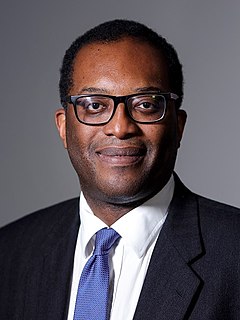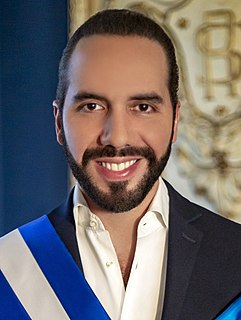A Quote by Kwasi Kwarteng
Aspiration, opportunity, and a stake in society are things which combine education, decent healthcare and the fruits of a capitalist system where individuals contribute to society, while also pursuing their natural inclination to improve their lot in life.
Related Quotes
There's always a tension between those who would like to garner wealth, and they contribute a lot to society. There's also those who say, 'I believe in the common good. I want that to be enlarged.' They contribute a lot to society. The tension, the debate, between these two views is extremely important to our progress.
At some point in your life you have to engage with the fact that you are part of a society. Yeah the individual is the most important facet in society but unless every individual is the recipient of free health care, free education decent affordable housing and a proper pension then only the rich and powerful will be individuals and the rest of us will be exploited by them.
A society which makes provision for participation in its good of all its members on equal terms and which secures flexible readjustment of its institutions through interaction of the different forms of associated life is in so far democratic. Such a society must have a type of education which gives individuals a personal interest in social relationships and control, and the habits of mind which secure social changes without introducing disorder.
Our society and our organizations have learned to value masculine, 'quick-fix' traits in leaders. In a primitive society, a rural society, or even the industrial society of the early 1990s, quick fixes worked out all right. But they are less likely to work in a complex society. We need to look at long-range outcomes now. Service and patience are what can keep things running effectively today and women can contribute a lot in both of these areas.
There is nothing more dangerous than to build a society with a large segment of people in that society who feel that they have no stake in it; who feel that that have nothing to lose. People who have stake in their society, protect that society, but when they don't have it, they unconsciously want to destroy it.
Society is made up of individuals. The thoughts and actions of each individual influence the culture of that society. Instead of waiting for others to improve, we should try to improve ourselves. Once our attitude has changed, we will be able to perceive goodness throughout world. If there is a positive change in us, it will also be reflected in others. It is only what we give that we can hope to get back.
We destroy the most hallowed of relations, when we replace home education by social.And your education! Is not that also social, and determined by the social conditions under which you educate, by the intervention, direct or indirect, of society, by means of schools, etc.? The Communists have not invented the intervention of society in education; they do but seek to alter the character of that intervention, and to rescue education from the influence of the ruling class.
To be actively pro-life is to contribute to the renewal of society through the promotion of the common good. It is impossible to further the common good without acknowledging and defending the right to life, upon which all the other inalienable rights of individuals are founded and from which they develop.
I have argued tirelessly, nearly endlessly, in so many books, about the need for the social, the economic reconstruction of society. The demand that people be present themselves, that they contribute to the reorganization of society, that they own up to their own complicity in a system from which they derive benefit and advantage, often without acknowledgement, and the discomfort, the uncomfortable way in which that must be acknowledged.

































